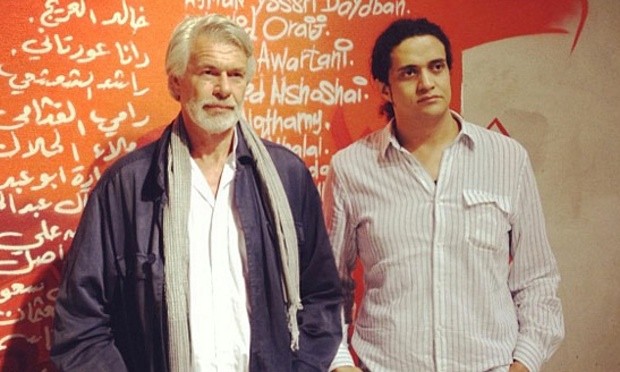
It needs you a few minutes to search the headlines to realize the active war of the Arab Gulf States authorities against expatriates who live and work there, as many procedures have been taken into effect regarding the current and future expats.
Kuwait is considering to stop all access to public health services for expatriates, though they pay KD 50 ($165) per year for every individual health insurance. The idea is to reduce stress on the government budget, weakened by lower oil prices in the international market.
Suggestions in this regard include doing away with ‘harmful subsidies’ which include healthcare for expats in public medical facilities, according to a report by the Supreme Council for Planning and Development. According to the daily newspaper Kuwait Times, there is an official call for imitating an example followed in the 1990s when the Kuwaiti government scrapped free education for expatriates in Kuwait, thus banning foreigners from studying at public and forcing them to enroll in private schools. The action led to a boom in the private sector, and skyrocketing of private school tuition fees in the country that has almost 3 million expatriates.
All news regarding expatriates are negative. Recently a high rank officer in the Ministry of Interior was interviewed on TV, who said that visiting family visas are too easy, as the coming people are enjoying free dinner meals every day by visiting the wedding parties!
Now, there is a growing fear of deporting anyone who might act against the law. Lately, the Kuwaiti authorities deported without trial 17 Egyptians and six Syrians after they were involved in a mass brawl over a commercial dispute. It is not only the official authority that acts against expats, as Kuwaiti citizens with racist intentions are worse. Recently a young Egyptian expat, named Ahmed Atef, was killed as a fight broke out between a group of Kuwaitis and Egyptian expat worker Mohamed Amin when they allegedly differed over a set price of a PlayStation game console. The two Kuwaitis wanted to buy the console at half its price, and later one of them drove his car over the victim. The Egyptian Embassy in Kuwait released a statement, announcing its condolences to the victim’s family. Egyptian diplomats are in contact with Kuwaiti officials to follow up on the investigations, and the Egyptian consulate assisted Atef’s family in Kuwait to receive his death certificate and sent his body to Egypt. An official from the Egyptian consulate went to Hawally prison in Kuwait to follow up on those who were arrested.
The scene gets worse in Qatar. According to BBC, the scandal surrounding corruption within world football’s governing body, FIFA, has focused fresh attention on the workers who have died building stadiums in Qatar for the 2022 World Cup. The figure of 1,200 deaths is often cited. Living and working conditions for migrants in Qatar are appalling. Long hours in the blazing heat, low pay and squalid dormitories are a daily ordeal for thousands; they cannot even leave without an exit visa. Qatar is clearly worried about stories getting out about the workers’ suffering. The Qatar authorities arrested a BBC team in Doha investigating the real story.
In Saudi Arabia, the news about the shameful and harmful actions of the Kingdom’s authorities against Arab citizens who live and work there, has become regular. Recently, a Saudi Arabian court sentenced the Palestinian poet Ashraf Fayadh to death for apostasy (abandoning his Muslim faith).
As published by Reuters, Mr. Fayadh was detained by the country’s religious police in 2013 in Abha, in southwest Saudi Arabia, and then rearrested and tried in early 2014. The verdict of that court sentenced him to four years in prison and 800 lashes, but after appeal, another judge passed a death sentence on the Arab citizen. Such judgments are common for many reasons, such as insulting the King, and that has forced many other Arab expats living in the KSA to flee.
Work agreements with violated human rights, low wages, social abuse and other types of harassment are among the rising problems facing the expatriates living in the Arab Gulf States, with different degrees from a country to another. While UAE is considered the best, it is also the most expensive one for average workers. In all Arab Gulf States, differentiation starts at the passport check point, but it does not end there.




